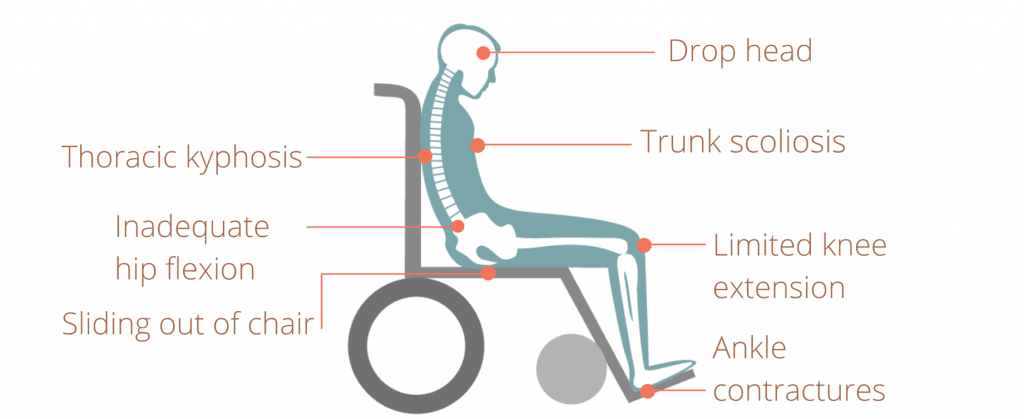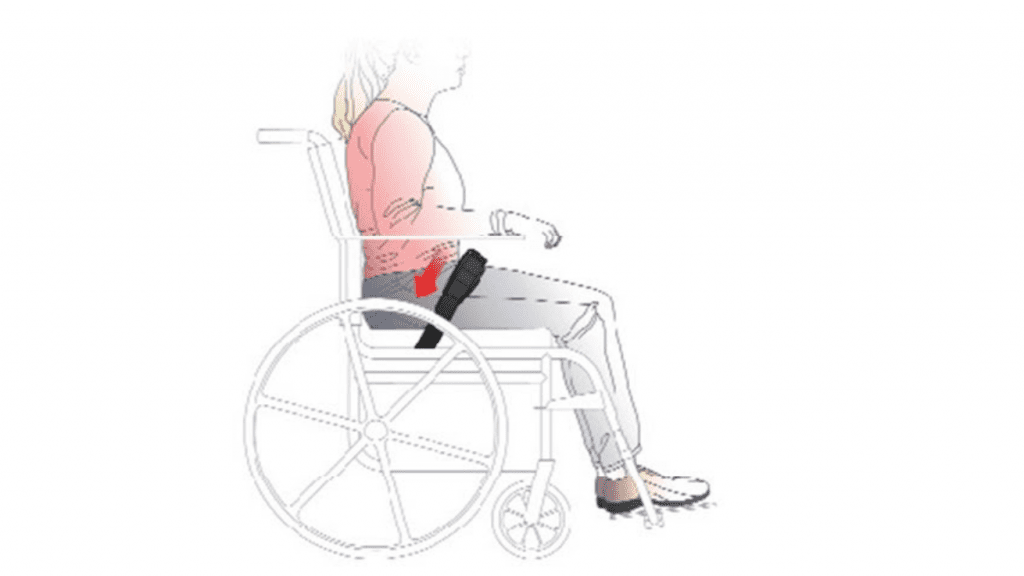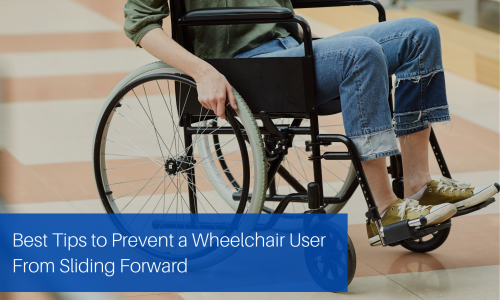Did you know that 80% of wheelchair users identified at least one wheelchair fit issue, like comfort, hindered mobility, and poor posture? When people start to feel uncomfortable in the position that they have been seated in, they will try to reposition themselves to be more comfortable. For example, users might try to slide down the wheelchair to reduce their back pain, unknowingly causing more damage to their bodies in the long run.

1. Use a wheelchair pelvic belt
What is a pelvic belt? A pelvic belt is an important tool that prevents users from sliding down the wheelchair. Once it is in the correct position, the user will not be able to move their pelvic, which will stabilize their posture.

How does a pelvic belt prevent the user from sliding?
Most wheelchairs come with a pelvic belt already attached, if not the wheelchair can be customized to include one. When the belt is put on, ensure that it goes across the user’s pelvis and meets at either side of their hip bones. If the belt is too high, there is a risk of injuring the user and them continuing to slide down the chair.
When the belt is fastened, ensure that the user is sitting as far back on the wheelchair as possible with their back against the backrest. Ensure there is room between the belt and the user of about 1 finger width only. If there is too much space in between, the user will have room to slide down and be left in the incorrect posture.

2. How to set up the correct position for the footplates
How do the footplates affect the user’s sitting position?
· If the footplates are set too high, the thighs will tilt-up, and all of the pressure will be on the hip bones.
· If they are set too low, the thighs will tilt down, and all of the pressure will be on the front of the thighs.
The correct position for footplates should be when the user’s thighs are parallel to the seat surface. This way, the sitting pressure is distributed evenly across both thighs.
If you have elevating leg rests on your wheelchair, you can find how to set up your leg rest here.
3. Prevent the user from sliding with a reclining and Tilt-in-Space wheelchair
If the user has to sit in the wheelchair for long periods of time, another way to solve the problem of sliding is to use a tilting and reclining wheelchair. Using the Tilt-in-Space function will transfer the weight from the hips to the back without disturbing the hip angle. This is a quick and easy solution for elderly caregivers to reposition the user into a more comfortable position.
4. What other adjustments can prevent the user from sliding?
1. Correct Seat Depth – If the depth of the wheelchair is too deep, the user will slide down the wheelchair to find support for their back. Additionally, if the seat depth is too short then you risk the user leaning forward and using their feet to find support.
2. Correct Seat Width – If the width of the wheelchair is too wide, the user will lean to one side to find a more comfortable position to support themselves. The negative impact of this is that the user could develop scoliosis. The solution for this is to have lateral trunk supports on the wheelchair or use small wedges between the side of the wheelchair and the user’s outer thigh.
3. Height Adjustable Armrests – If a fixed armrests are too high or too low, the user risks leaning to one side and putting unnecessary strain on their neck and shoulders.
We’re here to help
Call us: 561.640.2995
Email us: hello@clinicscanhelp.org

